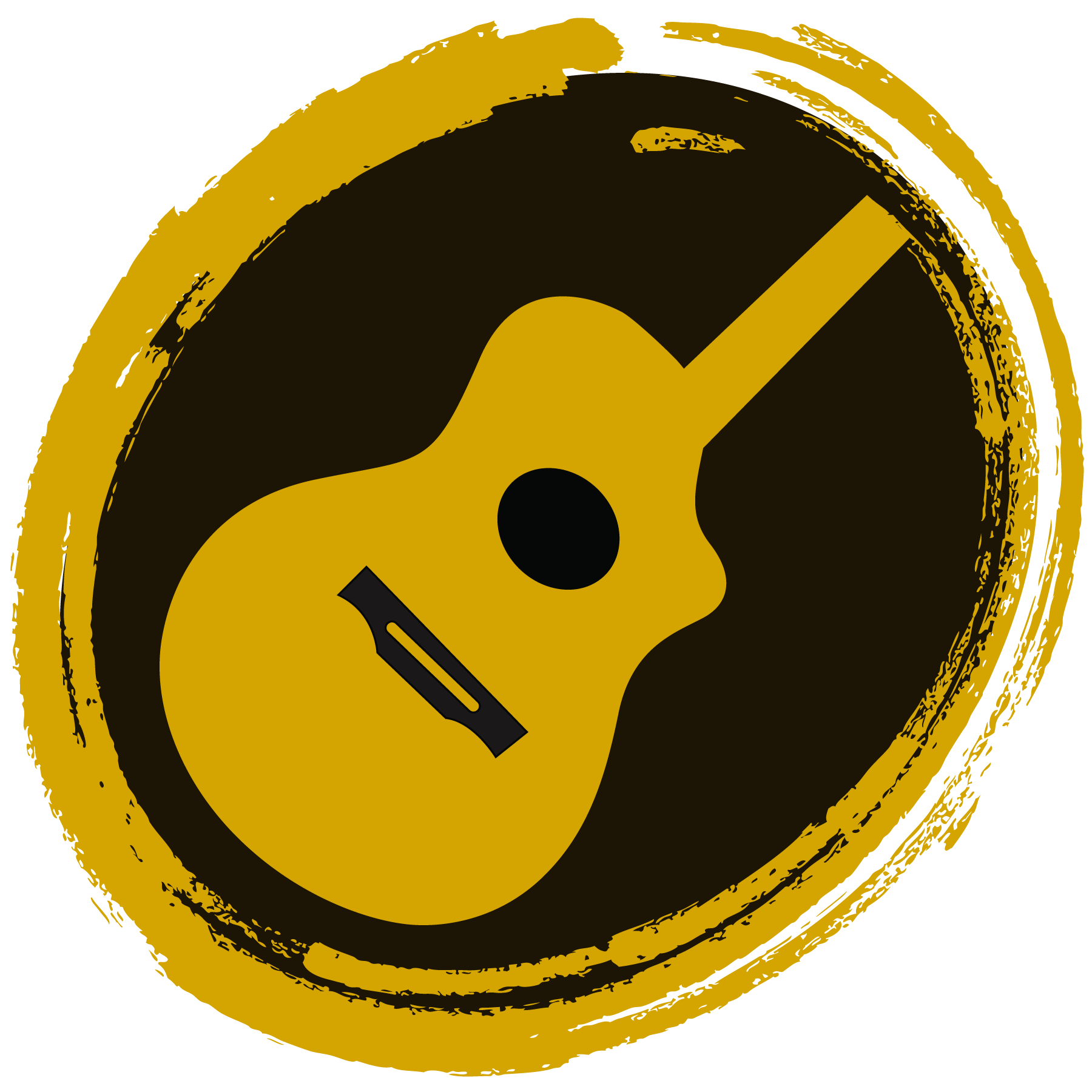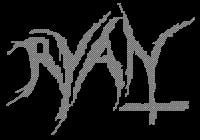I will be using Rocksmith and Justin guitar to learn and am looking for any and all advice. I don’t have an amp yet but I’m sure that’s fine.
5-10 minutes a day is better than 2hrs once a week!
Told my wife this this morning 😁
As someone who has been playing for 30 years, the best advice I can give you is that it’s way more important to play it correctly than it is to play it fast. You’re naturally going to want to rush and cut corners to try and make the thing sound like the thing as quickly as possible, but it’s in your best interest to fight that urge, slow down, and focus on accuracy.
The vast majority of what you’re doing when you’re learning guitar (or any other instrument) is programming muscle memory. That only happens through repetition, and it’s a very garbage in/garbage out process. If what you repeat the most is clean accurate movement and good technique, then that’s what’s going to become automatic. If what you repeat the most is sloppy, rushed, and full of mistakes, then that’s what’s going to become automatic.
This isn’t to say that you’re not allowed to make mistakes. You’re going to make tons, and you don’t really need to beat yourself up about it. Just notice when it’s happening and then slow down and really focus on breaking down the movements and playing it cleanly and correctly. Once you can do it perfectly playing slow, then you can start speeding up again. I don’t know if you’ve ever heard the saying, “slow is smooth and smooth is fast,” or, “you have to slow down to speed up,” but there’s nowhere it’s more true than in guitar playing. A huge portion of what makes up speed on guitar isn’t just physically moving faster, it’s accuracy and economy of movement.
Other than that, spend time practicing with a metronome. There are some good free ones you can download on your phone. It will help a lot in developing an accurate sense of rhythm, but just as importantly it will help train you to follow external cues while playing. This will be massively helpful later on when you’re jamming with other musicians.
Also, as much as possible, keep your guitar in tune, and tuned to a consistent pitch. Having that consistency will help develop your ear for recognizing pitch, and will make trying to learn songs by ear a lot easier later on.
I’ve been playing for 13 years, and I still struggle with lead parts because I wanted to play fast too soon… Do you think it’s too late to course correct? Specifically, I suck at keeping track of where my pick is when switching strings, and complicated parts where I switch between frets and strings fast are just 🙃🙃
I kill it on the rhythm section tho, just for the record. Because I had the exact opposite approach there. And it’s like night and day. I can feel how I can do all the little subtle things rhythmically the way I want to do on lead, but instead my lead sounds clumsy a lot of the time.
I don’t think it’s ever too late. Obviously it can be difficult to untrain bad habits, but it’s really just about sitting down and consistently doing the work. Forcing yourself to slow down can feel super tedious a lot of the time, sometimes you need to go like agonizingly slow for longer than you really want to in order to crack the part you’re working on, but it 100% pays off if you do it. And a lot of time you’ll eventually have to go back and do it over again because certain sections got sloppy over time. I still have to do it even after 30 years of playing. I don’t think it ever really ends.
Thanks for the encouragement. I’m gonna try to give it a real shot!
^^spot on!
Been playing for 30+ as well, heed this advice. To this day I still have shitty technique that I’ve had to learn to compensate for because I wanted to “play good fast”.
Thank you for this write up. My work uses “slow is smooth and smooth is fast” so I most certainly know what you mean.
I’ve realized I need to use more formal routes to make sure I practice the “correct” way. I had intended for lessons much later but I think I am going to speed up that timeline a bit.
deleted by creator
Thank you. Was leaning towards Squier but then saw this in a small music shop and loved it. Big fan of the tuners on the bottom.
Advice from somone whos been playing 4 weeks: have fun, stay motivated
You too! Keep it going.
deleted by creator
^^ this is also great advice. If your string action is crippling high, you’ll wind up with one of the issues I have to this day - you’ll press too hard when you fret, note will be sharp. Plus, you’ll be working way harder than you need to, causing finger / hand / wrist fatigue. If you want to learn how to properly set up a guitar, I’d suggest Dave’s World Of Fun Stuff on YouTube. Go back to his older videos where he explains more, the newer ones he skips a lot of steps if you’ve never set up a guitar before
Thanks for the recommendation I will check it out.
You made me Google (and learn) some new things and I thank you for that.
It is more fun when it sounds right.
deleted by creator
Nice guitar! I started with rocksmith 2014 (or Rocksmith 2 if you will) and learned many songs that I love to play to this day. Once you get your fingers working you’ can hop on to youtube and follow some tutorials.
By the way don’t neglect the rhythm or lead guitar even if you prefer one. You’ll get better by switching every now and then.
Remember you don’t have to play perfect to have fun!
This was very reassuring to read. Sometimes I get nervous that Rocksmith won’t do it but then I see this and know I can make the leap.
No amp is totally fine to start, and it’s better to practice unplugged and save up for the best amp you can buy for your needs.
My advice is to do the learning on Justin Guitar, and the fun practice on Rocksmith. If you can, find some local peeps that are also starting to learn and that will accelerate your learning big-time.
Thank you for the advice. Rocksmith has been fun so far but I feel like I’m making up too much which is fine for a game but probably not for long term learning/progression.
I am leaning towards the Boss Mini Katana 7 watt amp. Seems affordable and feature-rich.
Justin guitar will give you the technique and knowledge, Rocksmith will give you the repetition and muscle memory. The Katana is dope, though blackstar makes a fun little practice amp too. For a practice one just try to find something used on FB marketplace or Reverb.
My god was this ever useful. I’ve been checking out FB marketplace since and it is a gold mine. I’ll probably get an amp off of there.
Awesome man, I’m glad I could help! Remember you’re going to be moving on from your first amp at some point, same with the guitar. I would just get solid pieces to learn on and save for the pro stuff later. A small practice amp that you can easily move room to room is awesome when you start since it can make your first easier to pick up and play anytime you’re chilling out. Make sure it has a way to plug in some headphones so you can practice without waking anyone that might live with you. Always do the bulk of your learning/practice with a clean tone so it’s easy to identify any mistakes. Throw on the effects when you are having fun or finding your tone.
I feel like I’m making up too much
Depending of course what you’re doing and and what you’re aiming for, it’s perfectly fine. I’ve learned most from improvisation - if it sounds right, it’s right, you really shouldn’t be too rigid and analytical and technical. Again depends on what you’re playing, but too many starting players of any instrument focus too much on “playing right”. “Playing right” doesn’t mean in any way limiting your creativity and imagination (unless you’re aiming to be an orchestra player).
If you’re playing classical music or black metal or something then sure, it’ll do you good to learn where the scales are etc., but if you really feel like “adventuring”/“exploring”/improvisation is more your thing, go for it. There is nothing there that might hinder your ‘long term’ learning or progress, everything, every concept and thing you can learn from focusing on more “technical”/analytical stuff is there to be learned from anything you can listen to, just by listening. It might be easier for someone to learn from musical theory (and it is a great format to share and learn ideas), but that’s simply not the case for everyone. Just play. Don’t be a gearhead, it’ll do wonders for your sound and playing.
e: typos/autocorrect
Thank you so much for this. I don’t plan on being in an orchestra or even playing shows so I can just have fun along the way. Amazing 😅
No problem. Like, they literally have these tests (the name escapes my mind right now) in conservatories etc where you just, play and let loose, just improvise, not like a solo, just, play some shit along with the piece. I never really got good at reading music, but I understand all/most of the concepts transmitted and I always felt like I was dragging my feet trying to force myself to think more technically and analytically. Ever since I stopped I’ve written more songs and music much more amazing than I ever did before. Like I even go to lengths to avoid it and tune my string instruments into all these weird fucked up tunings so I don’t even learn to rely on muscle memory, because it will happen - so I’ll just find the sounds that are right.
Sure you can make songs at an amazing pace and sound like the fucking Beatles if you follow the circle of fifths and stuff, but the soul of it is somewhere completely else in my opinion. You can hear it, you feel it when it’s right. Follow that intuition and fuck the rest. There’s a threshold in music theory up to which, if you learn (and you absolutely don’t have to) can help you - basic concepts: what are intervals, scales and the very basics of how chords are formed, but really you play with your ears.
If you think about some of the most amazing musicians, they started with shitty broken down instruments. Like with blues, people literally started with just a goddamn wire strung up on a piece of wood with two nails and they’d become some of the most amazing players in the world. Or players literally growing up playing with a guitar that has just a couple of strings and when they got good enough their teacher gave them a guitar with all six. You don’t need all that bullshit to play and be great or let alone enjoy yourself and the music you make. All you need is a fucking string nailed to a board and creativity. Let it fly. Follow that intuition.
Sorry for these walls of text I’m not on mobile.
e: I’m sorry I can’t give you a link right now, but I highly recommend looking up people, kids, literally kids from like Africa, there’s plenty on Youtube, that are playing on instruments they literally whittled from shitty pieces of wood with like, knives or something that play these shitty instruments they made, better than anyone you know. Instruments that absolutely “sound like crap” with probably fingers filled with splinters when people who have had great instruments for all their life couldn’t carry a tune to save their life, because you can find a good sound and tone and touch from even the worst instruments. And don’t let it be disheartening, let it be a testament to the raw power of creativity and imagination, because that’s what it is. Creativity manifesting itself in it’s purest form!
I love this. I know the exact videos you are talking about. Those kids smash it without real instruments.
I love this spirit and energy and it definitely speaks to how I want to tackle this new lifelong challenge and joy.
Thank you so much for sharing.
For rocksmith, did you get the cable or are you playing via mic?
I did pick up the cable.
In addition to dedicated lessons, remember to just play around and have fun too. You don’t want to turn it into a chore. Spending some time diving in blind can be a lot of fun and a great learning experience as well.
Yes! So far I am stopping when it stops being fun.
Scales.
There are a lot of great comments here about practice and having fun and nice guitar.
You want to learn how to play?
SCALES.
On the guitar there are chord scales and single note scales.
Learn them all. Especially chord scales.
Your goal should be to pick up the guitar and freely play it, and I’m not talking about a song, what I mean is if I say play me a blues riff in e minor you should be able to do that!
Memorizing the entire fret board, although I massive chore is one of the best fundamentals you’ll ever learn!
Thank you for this insight. I have started looking at the fret board and were you ever right about that being another major facet.
I will begin studying this too.
I think you can use the Rocksmith cable (Real Tone cable?) as an audio interface for amp sims. Might be a way to play with effects while saving up for an amp.
If you aren’t planning on playing live for an audience, you might just upgrade to a real audio interface instead of an amp.
I have the cable and have figured out that I need an ASIO4ALL driver but I am having a few hangups still. My speakers aren’t too loud which is my biggest drawback.
Main issue with RTC and amp sims would be drivers. I think the only thing that would work is ASIO4All. I haven’t really tried myself but my expectation is that it would have some lag to it. Something like the Fender Mustang Micro (I have this, big fan), or a NUX Mighty Plug, or the new IK iRig USB (mentioned in Guitar Geek The Week in Gear 22, seems like a crazy good deal with Amplitube and ToneX software included) would all be good options that are still useful even after OP buys an amp.
With FlexASIO, the drivers fails to initialize, when using the Realtone cable. I just have a Scarlett Solo instead, since I also need one for a mic
Scarlett solo is a great little device, affordable new and you can find them used even cheaper pretty regularly at pawn shops and the like
Here is an alternative Piped link(s):
Piped is a privacy-respecting open-source alternative frontend to YouTube.
I’m open-source; check me out at GitHub.
I highly recommend you learn some theory and get a teacher if possible. That will accelerate your ability to learn new songs and will help if you ever want to write your own. A Circle of fifths wheel is probably the easiest way to understand the basics of what’s going on. They are like $10 on amazon. Scales, arpeggios, licks, and patterns are also super useful. The more pattern recognition you can develop the more you can improve as a player. Unfortunately, effective practice is often much more boring than practicing the songs you love.
These days YouTube is all you need
I wouldn’t mind the theory but I wouldn’t be able to stick to lessons in any regular pattern (currently) so I plan on holding back on formal lessons. I am hoping I will benefit more having some frustration under my belt too.
1 of…
I’m starting to feel like this is a “first of…” type of hobby.
Well you have your first electric guitar, then your better electric guitar your Drop D guitar, then your electroacoustic guitar, then your acoustic guitar you bring to parties that’s covered in beer and salsa, then your good acoustic guitar for studio recording. Then we get into amps… and pedals… and mics… good luck.
She’s a beauty, better looking than my first one. Just one point no one has raised before (maybe it’s headstock confusing me) - if you’re left handed, you might want to tape some of those knobs (and especially the wire, with extra padding) in place, or you’re gonna keep hitting them and the jack - you can definitely use the switch-handedness to do such cool volume/tone sweeps, but if you notice you’re constantly hitting the knobs unintentionally, lots of people tape them.
Also like some commented to an extent, you don’t need an amp, especially if you have a smartphone or a basic computer - you can test out a lot more options and figure out what kind of a sound you like if you get whatever type of stuff you need to get to connect your guitar to a computer. Tons of professionals don’t even use amps and instead use virtual amp models. You can do so much if you can just connect your guitar to a computer or smart phone.
I’m not a lefty (or at least I don’t think I am) but this guitar does have the tuners on the bottom side of the… handle head (I have zero idea what the top of the guitar is called).
I am now looking into amp software as that could save me from myself. Although someone else mentioned FB marketplace for used amps and that also seems promising while affordable.
Ah I think the head stock (that’s where the tuners are) is just flipped for aesthetic reasons and it just made it look like it’s a lefty :D I think it’s a cool look either way.
Amps are great and especially if you’re located someplace you can get used stuff cheap go for it! Even if you get an amp I highly recommend looking into amp models as well. “Starter” amps get you well on your way, but with amp models you can try out different sounds, tones and you don’t need to shell out money to buy pedals from the get-go just to see if this or that effect is something you actually want or need, tons of free options even. Like I said - tons of professionals, even people you might not suspect, play and record a lot of stuff on virtual amps and effects, especially in the studio.
It really is amazing how good amp models and effects have become over the past 20 years. So many pedals are fully digital these days it’s mind blowing how great the sound is. You don’t need to go too many decades back in time when people went to amazing lengths to get a good reverb (physical string and plate reverbs) etc, and sure analog stuff has its’ own sound but even great amps these days are made fully digital.
Look into something like an iRig or similar for a cheap (also on-the-go) option to connect your guitar to your phone or computer(sorry actually I think the Rocksmith adapter might do the trick already). Nothing wrong with going both ways. Just be prepared to have any living space full of gear from now on. GAS/Gear Acquisition Syndrome is real and you’re going to fight yourself over whichever gear you’re gonna want - in which digital stuff will help.e: Also to add, Rocksmith is an amazing place to start and I wish I’d had it when I started.
Have fun with your new guitar!
Just to point out, while I think the reverse headstock (tuners on the bottom) is generally seen as an aesthetic thing, it does serve a purpose… it allows for a bit higher tension on those thicker strings so they’re not super floppy, especially if you want to use lighter gage strings or tune down substantially from standard (EADGBE). No issue if you do stay in standard, but it is a benefit if you tune lower.
Huh, never knew that, thanks.
It’s also the “functional” purpose of multiscale (fanned fret) guitars, although I’m willing to believe most people who buy then do it for the looks or think it’s for ergonomics.
Nice guitar! It’s not really an advice, but good luck, it’s really really challenging (if you’re a complete beginner).
I had a friend stop by just make sure I wasn’t strumming too hard or soft.
aye she’s a keeper i’d say
advice is, find an artist you like and study him like he’s your sensei… Jeff Beck, Jimmy Paige, Stevie Ray, Joe Walsh, whoever makes you think “oh man, how do i make this thing do THAT”…
This endeavour has made me dive deeper into who actually plays the music that I love. Especially guest appearances on albums and tracks.
guest appearances on albums and tracks
amen to that










